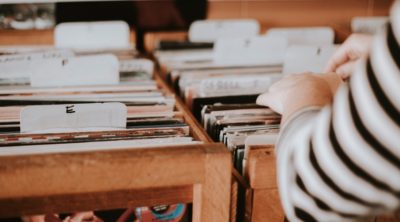
This music censorship timeline is not a complete one, and it simply recounts some events in the United States that have shaped the censorship of the music industry. Over time, all these events have combined and brought several restrictions on the music industry, some of which are justified, and some of which are not.
Music has faced a perennial battle against censorship for decades now, because there are always certain parties who find a reason to block the spread of music and the access of music to certain people. When the censorship of music is undertaken with the purpose of protecting children from adult content, then it is fine and censorship is also acceptable when it is carried out in order to fight piracy so that the music artists get their rightful share in the profits that they reap. But, when censorship is carried out with the purpose of spreading or restricting propaganda, or to stop a public message from reaching the public or for any other legal, moral or Governmental purpose, then it is definitely not the right thing to do.
Certain genres of music today have a lot of obscene and profane words in them, and the justification that the artists give is fine. Certain artists produce alternative versions where these words are omitted or replaced, and certain other artists carry warning signs on their CDs so as to warn parents about the content that they contain. Music that contains such content has led to the birth of several different techniques to disguise these words, and these methods are commonly used by music artists from all around the world now.
Timeline of Music Censorship
After studying the history and the number of incidents that affected music artists and raised public consciousness about music censorship, the following timeline can be referred to. There are a number of other incidents that may have occurred as well, and not all of these incidents are solely related to the use of profanities in music, but studying it closely will shed some light on the manner in which this censorship has prevailed in the United States music industry.
- 1936: BBC Radio banned George Formby’s When I’m Cleaning Windows for objectionable lyrics.
- 1955: Radio stations in Chicago receive 15,000 letters in one week which complain about the effect that rock and roll is having on youngsters.
- 1956: ABC Radio banned Billie Holiday’s Love For Sale for singing about prostitution. ABC Radio also made Cole Porter change the lyrics of I Get A Kick Out Of You for mentioning the word cocaine.
- 1959: Rumble by Link Wray is banned by radio stations across the country even though it is an instrumental song, because it is feared that the song will encourage teenage gang violence.
- 1966: The Beatles are faced with severe public outcries and banishments after John Lennon claims that the band is more popular than Jesus Christ.
- 1968: A radio station in El Paso, Texas bans all songs by Bob Dylan because they could not understand the lyrics and felt it talked about offensive matters.
- 1969: BBC Radio banned Come Together by The Beatles and Lola by The Kinks because they felt that the songs could be misunderstood as advertisements for Coca-Cola.
- 1973: In a major happening, the Supreme Court granted the power to local communities to ban music that they felt was obscene and was influencing the youth.
- 1981: Olivia Newton John’s song Physical is banned in Salt Lake City and Provo due to the sexual messages it carried.
- 1985: Tipper Gore and Susan Baker form the Parents Music Recourse Group (PMRG) to monitor and ban objectionable music.
- 1987: Ozzy Osborne is sued by parents of a boy who committed suicide. They claimed that the boy was led to do so after listening to Suicide Solution.
- 1990: Rap group N.W.A. are sent a letter from the FBI, informing them that the lyrics of their song Fuck the Police were not appreciated by law enforcement agencies.
- 1990: Judas Priest is sued by two families, who claim that the lyrics of their song Stained Class encouraged them to perform extremely obscene acts.
- 1990: In Dade County, Florida police set up a sting arrest to catch music retailers who are illegally selling records by 2 Live Crew to children below the age of 18.
- 2000: The parental advisory label is made more profound in the country, and more and more music censorship organizations are set up.
After the terrorist attack in September 2001, several radio stations banned more than 150 songs that they felt contained lyrics that propagated violence. Since then, the music industry has faced several new rules and legislations about the censorship of music, and this has in turn led to more artists handling their lyrics more responsibly.
The primary aim of this censorship, in the United States at least, has been to prevent obscene content and profanities reaching children, but when it is used to fulfill the vested interests of certain parties, things need to be brought back under control. This timeline is simply a brief recollection of certain events over the last few decades, and there are undoubtedly many more such incidents which have also shaped the music industry into what it is today.


